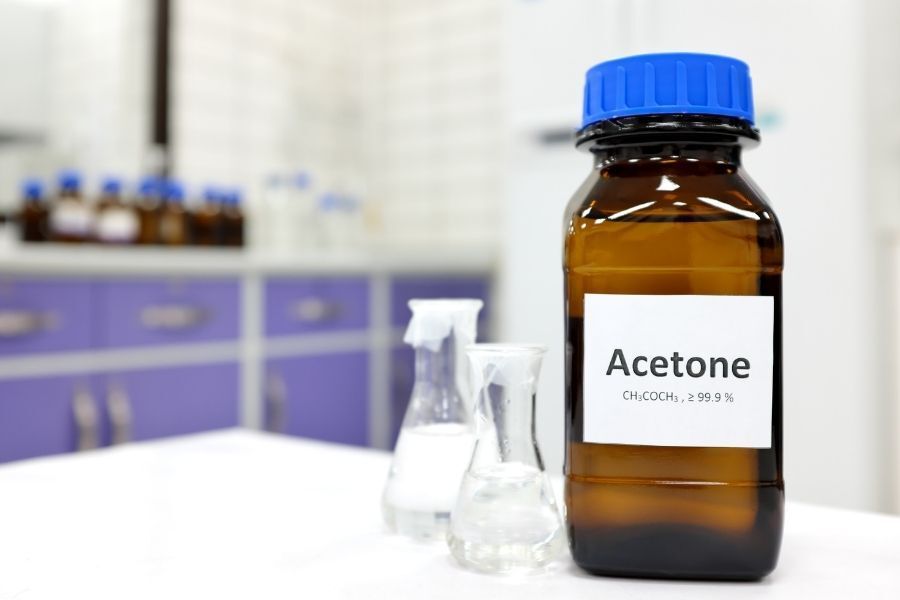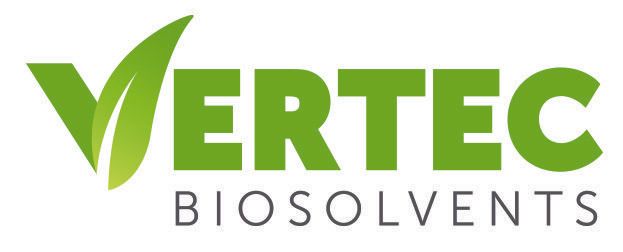What is the Difference Between Mineral Sprits & Acetone

From oil paints to fingernail polish, mineral spirits and acetone are among some of the most commonly used solvents. Ideal for a large variety of uses, both mineral spirits and acetone offer plenty of benefits, however, there are key distinguishable differences between the two.
In this article, we’ll explore the differences and similarities between mineral spirits vs acetone, their uses, and introduce you to some smart, eco-friendly alternatives.
What are Mineral Spirits?
Mineral spirits, also known as white spirits, are a type of petroleum-derived solvent. They are highly effective in thinning oil-based paints and varnishes and are widely used for cleaning brushes, tools, and equipment after use. The power of mineral spirits lies in their ability to dissolve a wide range of substances, thanks to their unique composition of hydrocarbon compounds. This versatility makes them a go-to solvent in various industrial and household applications.
Common Uses of Mineral Spiritis
Mineral spirits are valued for their effectiveness and versatility in many applications:
Paint Thinning and Application: Mineral spirits are commonly used to thin oil-based paints, varnishes, and stains, improving their flow and reducing the likelihood of cracking. This makes them indispensable in painting projects where a smooth finish is desired.
Tool and Equipment Cleaning: After painting or varnishing, mineral spirits are often used to clean brushes, rollers, and other tools, preventing paint from hardening and extending the life of the equipment.
Degreasing Surfaces: Mineral spirits excel at degreasing metal surfaces, making them ideal for preparing surfaces before painting or applying other coatings.
Industrial Uses: In manufacturing, mineral spirits are employed for their ability to dissolve a variety of substances without leaving a residue, making them suitable for various production processes.
Other Applications: Mineral spirits can also be used as a fuel additive in some cases or as a base solvent in dry cleaning fluids.
Furthermore, since mineral spirits are made from petroleum they are a nonrenewable resource. Not to mention, the methods used to extract the petroleum used to make mineral spirits can cause damaging effects to both our earth and the ozone layer.
While mineral spirits have proven themselves to be an indispensable asset for tackling a range of jobs at home or in the workshop, choosing to use a biobased solvent, like VertecBio™ ELpine, eliminates the hazards associated with petrochemicals. VertecBio™ carries an extensive list of quality products that are safe, non-toxic, non-carcinogenic, and most importantly highly effective.
What is Acetone?
Acetone, also known as propanone, is a colorless, volatile liquid widely recognized for its strong solvent properties. It is commonly associated with household uses like nail polish remover, but its applications extend far beyond that. Acetone is highly effective at dissolving paints, adhesives, resins, and various other substances, leaving no residue behind. This makes it an essential solvent in many industrial and manufacturing processes.
Common Uses of Acetone
Acetone's versatility and effectiveness make it a preferred solvent in a range of applications:
Paint and Coating Removal: Acetone is frequently used to remove paint, varnish, and other coatings from surfaces, making it a go-to choice for both household and industrial cleaning tasks.
Adhesive and Resin Dissolution: In manufacturing, acetone is used to dissolve adhesives and resins, ensuring that these substances can be easily removed or reworked as needed.
Degreasing and Surface Preparation: Acetone’s volatility and quick evaporation rate make it ideal for degreasing and drying surfaces, such as metals and engine parts, without leaving any oily residue behind.
Cleaning Applications: Acetone is often used to clean tools and equipment in various industries, particularly where a strong solvent is needed to remove stubborn residues.
However, while acetone is highly effective, it must be used with caution. It is known to dissolve certain plastics, so care should be taken when applying it to plastic surfaces. Additionally, acetone is highly flammable and emits hazardous fumes, making it crucial to use proper protective equipment and work in well-ventilated areas.
With this in mind, there are options to replace acetone with an
eco-friendly replacement. Vertec BioSolvent’s
ELSOL AR is designed to do work as a replacement for acetone, and it bolsters a lower environmental impact.
What are the Similarities and Differences Between Mineral Spirits and Acetone?
In various industries, mineral spirits and acetone are preferred solvents because of their range of applications. These two solvents work to dissolve stubborn materials like paints, adhesives, and resins while leaving no traces behind. However, keep in mind that there are differences that should be considered before choosing which one to use for a specific task.
Similarities
Even though they have different chemical components, mineral spirits, and acetone have a few things in common with each other.
- Solvent Properties: Comparing mineral spirits vs acetone, they both possess strong solvent properties, making them effective at dissolving various substances.
- Cleaning and Degreasing: They are commonly used for cleaning tools, equipment, and surfaces, as well as for degreasing purposes.
- Volatility: Both solvents evaporate quickly, leaving minimal or no residue.
- Versatility: Mineral spirits and acetone are used in industries such as manufacturing, automotive, painting, and construction.
Differences
While mineral spirits and acetone share a few similarities, they also have marked differences.
- Chemical Composition: Mineral spirits are petroleum-based solvents, and acetone is an organic compound derived from the oxidation of isopropyl alcohol.
- Odor: Mineral spirits have a mild odor, while acetone has a strong and distinct odor.
- Flammability: Acetone is highly flammable. Mineral spirits have a higher flash point and are considered less flammable.
- Paint Thinning: Mineral spirits are commonly used for thinning oil-based paints and varnishes, while acetone is mainly used for thinning lacquers and some types of paints.
- Compatibility: Acetone can dissolve certain plastics, while mineral spirits are generally safe to use on most surfaces and materials.
- Drying Time: Acetone evaporates faster than mineral spirits, making it a better choice for applications requiring fast drying.
What are Lacquer Thinners?
Beyond acetone and mineral spirits, is lacquer thinner. Lacquer thinner is a crucial component in the finishing industry, specially crafted to dilute lacquers used for enhancing and safeguarding wood, metal, and other surfaces.
Lacquer thinners are usually used to adjust the viscosity of lacquer coatings. This modification simplifies the application process, ensuring the creation of an even finish. Numerous factors determine the ideal thinning ratio, including application method, environmental factors, and the lacquer product used.
Lacquer thinners also have purposes beyond just thinning lacquer. They also serve as an essential cleaning agent for lacquer-based coatings and tools. When left untreated, lacquer residues can accumulate on brushes, spray equipment, and other application tools. This can cause some major issues in their performance. With the effective dissolving and removal properties of lacquer thinners, these residues can be easily cleaned. Thinners provide proper maintenance to equipment and ensure consistent performance.
Lacquer thinners are usually made of a combination of solvents, like mineral spirits, acetone, and other chemicals. The formulation is tailored to meet the specific requirements of lacquer applications. Mineral spirits provide good solvency for oil-based lacquers, while acetone helps in the quick drying of lacquer coatings.
It is important to note that lacquer thinners are specifically intended for lacquer-based products and may not be suitable for other types of finishes. Different types of coatings, like oil-based paints or varnishes, may need different solvents for thinning and cleaning purposes. You must choose the right solvent based on the specific product and its compatibility.
When using lacquer thinners, you also need to follow safety precautions because they are typically highly flammable. Adequate ventilation should be ensured during the application, and proper protective equipment, such as gloves and goggles, should be used.
Unsure of Which is Best For You? Contact Vertec BioSolvents!
Vertec BioSolvents provides eco-friendly options for those looking to
substitute mineral spirits or acetone. Their bio-based solvents, extracted from renewable sources, deliver top-notch
cleaning and degreasing properties while preserving superior performance. Consider Vertec BioSolvents' bio-based alternatives to mineral spirits and acetone for an environmentally conscious and sustainable solution. Contact us for more information or to discuss your options.


